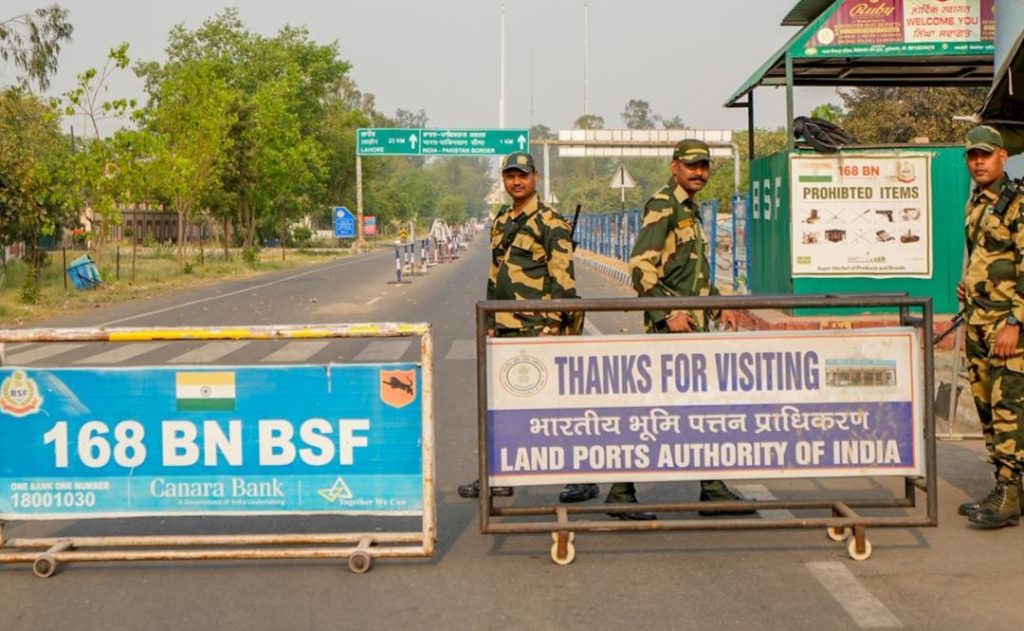
Attari-Wagah Border between India & Pakistan Completely Closed
The Attari-Wagah border, a symbol of the intense rivalry and tension between India and Pakistan, has been completely closed, leaving both countries with no option but to maintain a strict blockade. According to PTI, the news agency, the border was shut down on Thursday, with no one from either side allowed to cross over to the other.
This sudden and unexpected move has sent shockwaves across the region, with many speculating about the reasons behind the closure. While India and Pakistan have had a tumultuous relationship in the past, the closure of the Attari-Wagah border is a significant development that has far-reaching implications for both countries.
In recent weeks, tensions between India and Pakistan have been escalating rapidly. The Pahalgam terror attack, in which 26 tourists were brutally murdered, was the latest incident to strain the fragile relations between the two nations. In response to the attack, India had deported a large number of Pakistani nationals who were living in India, many of whom were denied entry back into Pakistan.
Pakistan, however, took umbrage with India’s decision and refused to accept the deported nationals, citing humanitarian concerns. The standoff led to a complete breakdown in relations between the two countries, with the Attari-Wagah border being the first casualty.
The closure of the border has left thousands of people stranded on both sides, including Pakistani nationals who were deported by India and were waiting to be allowed back into Pakistan. The situation is particularly dire for those who were forced to flee their homes in the wake of the Pahalgam terror attack and are now stuck in limbo, with no clear indication of when they will be able to return to their homeland.
The implications of the border closure are far-reaching and multifaceted. Economically, the closure of the border will have a significant impact on both countries, particularly in the trade and commerce sectors. The Attari-Wagah border is one of the busiest land borders in the region, with thousands of people crossing every day. The closure of the border will not only disrupt trade and commerce but also affect the livelihoods of countless individuals who rely on the border for their daily bread.
Politically, the closure of the border is a significant blow to the fragile relationship between India and Pakistan. The two countries have been at odds for decades, with tensions flaring periodically over issues such as Kashmir, terrorism, and border disputes. The closure of the border is a clear indication that the situation is at a stalemate, with neither side willing to budge.
The closure of the border also raises questions about the future of the peace process between the two countries. For years, India and Pakistan have been engaged in a series of talks aimed at resolving their differences and improving relations. However, the recent developments suggest that the peace process is at a standstill, with no clear indication of when it will be revived.
In conclusion, the closure of the Attari-Wagah border between India and Pakistan is a significant development that has far-reaching implications for both countries. The border closure is a clear indication of the deep-seated tensions between the two nations and the lack of trust and confidence that exists between them. While the situation is dire, it is essential that both countries engage in a constructive dialogue aimed at resolving their differences and improving relations.






